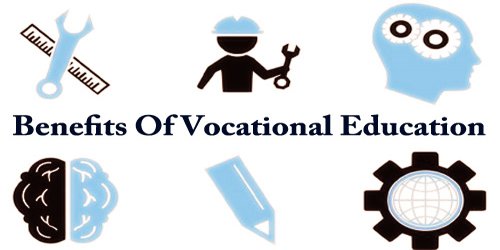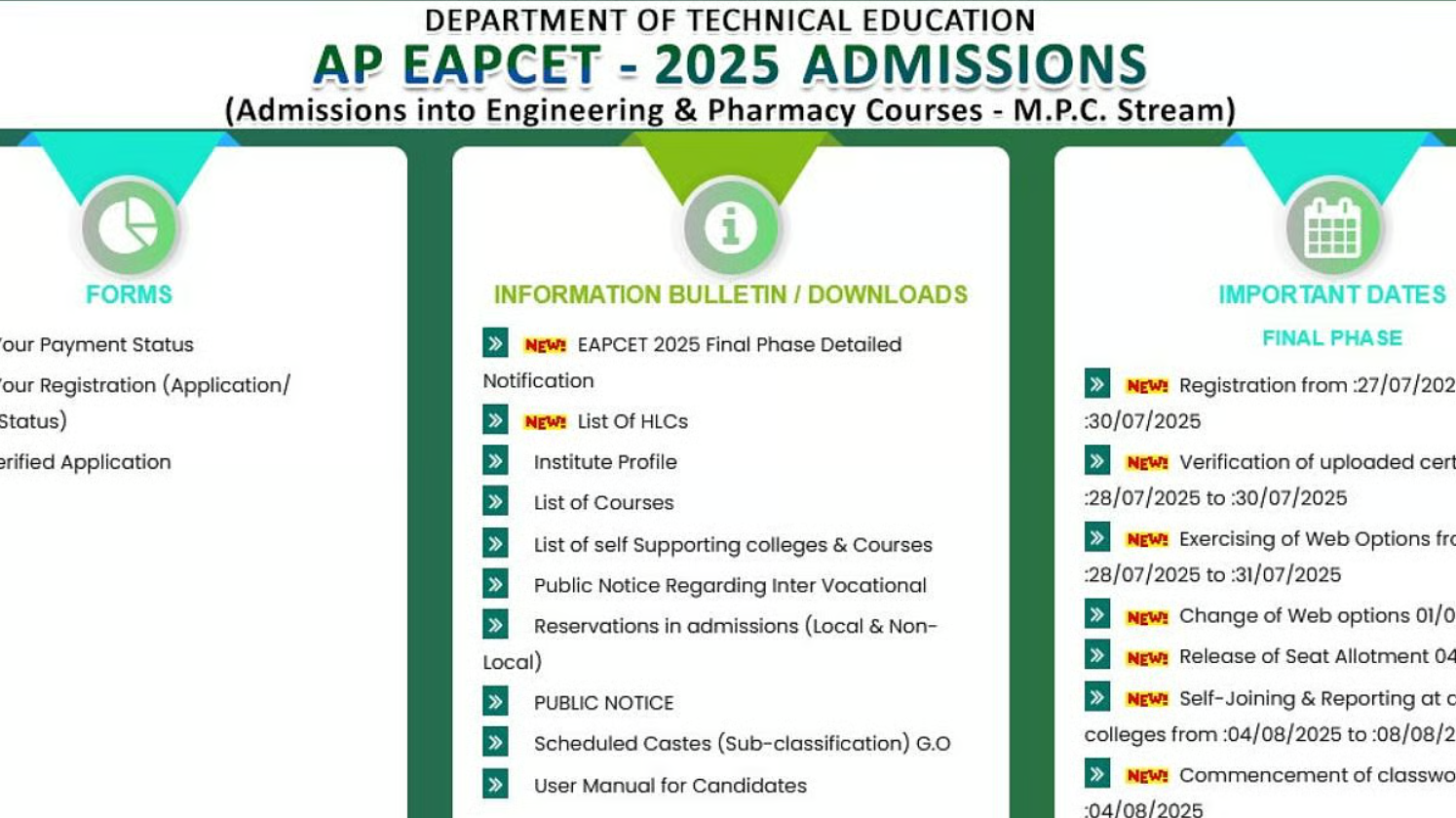The Full Spectrum: The Comprehensive Benefits of Vocational Education
In an era marked by rapid technological advancements and changing industry dynamics, traditional educational paradigms are evolving. Vocational education, once overshadowed by academic pursuits, is now taking center stage, offering a transformative approach to learning that aligns with the demands of the modern workforce.
Why Choose Vocational Education?
In the quest for knowledge and skill acquisition, individuals are presented with a crucial choice: the traditional pursuit of theoretical knowledge or the pragmatic approach of vocational education. Vocational education stands out as a beacon for those seeking hands-on learning experiences tailored to real-world applications. Unlike conventional academic routes, vocational education places a premium on practical skills, equipping individuals for success in a variety of industries.
Real-World Application of Skills
One of the defining features of vocational education is its seamless transition from the classroom to the workplace. While academic programs often focus on theoretical concepts, vocational education emphasizes the immediate application of acquired skills. This bridging of the gap between theory and practice ensures that individuals enter the workforce with a practical skill set, ready to contribute meaningfully from day one.

Career-Specific Training: Meeting Industry Needs
Vocational education is synonymous with precision and relevance. Unlike broad academic curricula, vocational programs are meticulously crafted to address specific industry needs. Whether it’s healthcare, technology, or skilled trades, vocational education tailors training to match the demands of diverse professions. This targeted approach not only accelerates skill acquisition but also ensures graduates possess the exact competencies sought after by employers.
Faster Entry into the Workforce
Time is of the essence in today’s fast-paced world, and vocational education offers a streamlined path to the workforce. Unlike traditional academic routes that may span several years, vocational programs often focus on the essential skills required for a particular profession. This targeted approach translates into a quicker journey from the classroom to the workplace, enabling individuals to embark on their careers sooner and with a competitive edge.
Increased Job Opportunities
The benefits of vocational education extend far beyond swift entry into the workforce; they open doors to a myriad of job opportunities. Industries hungry for specialized skills actively seek individuals with vocational training. As technology continues to reshape job landscapes, the versatility of vocational skills positions graduates as sought-after candidates, capable of adapting to the evolving needs of diverse industries.
Adaptability in a Dynamic Job Market
In a world where job roles undergo a constant transformation, adaptability is a prized trait. Vocational education instills this crucial quality by grounding individuals in practical skills that transcend industry fluctuations. Graduates are equipped not only with the knowledge relevant to their specific field but also with the flexibility to navigate evolving job landscapes. The adaptability fostered through vocational education positions individuals as assets in an ever-changing professional environment.
Entrepreneurial Empowerment
Entrepreneurship thrives on innovation, and vocational education cultivates precisely this spirit. By instilling practical skills and problem-solving abilities, vocational training empowers individuals to embark on entrepreneurial endeavors with confidence. Many successful entrepreneurs attribute their business acumen to the hands-on experiences gained through vocational education. Whether starting a small business or venturing into the corporate world, vocational know-how becomes a formidable foundation for entrepreneurial success.
Financial Benefits of Vocational Education
The financial benefits of vocational education ripple through both individual lives and societal structures. Individuals with specialized skills often command higher salaries, and the streamlined nature of vocational programs reduces the financial burden associated with prolonged academic pursuits. Moreover, as skilled professionals enter the workforce promptly, they contribute actively to economic growth, amplifying the positive impact of vocational education on both personal and societal financial well-being.
Myths vs. Realities: Dispelling Misconceptions
Despite its proven merits, vocational education often faces misconceptions that hinder its broader acceptance. This section aims to debunk prevalent myths, such as the notion that vocational training is inferior to academic education or that it limits career options. By providing accurate information and dispelling these myths, individuals can make informed decisions about their educational paths, understanding that vocational education is a respected and valuable choice.
Frequently Asked Questions (FAQs) About Vocational Education
Q: Is vocational education only for individuals who may not excel in traditional academic settings?
A: Not at all. Vocational education caters to diverse learning styles and is suitable for individuals seeking practical, hands-on skills tailored to specific industries.
Q: Are job opportunities limited for those with vocational training?
A: On the contrary, vocational education opens doors to a wide range of job opportunities. Industries actively seek individuals with specialized skills gained through vocational training.
Q: Do vocational programs provide opportunities for further education?
A: Yes, many vocational programs offer pathways for further education, allowing individuals to build on their practical skills and pursue higher qualifications if desired.
Q: How does vocational education prepare individuals for the rapidly changing job market?
A: Vocational education fosters adaptability by providing practical, industry-relevant skills. Graduates are well-equipped to navigate evolving job landscapes.
Q: Are vocational programs only suitable for certain industries?
A: No, vocational education spans various industries, including healthcare, technology, skilled trades, and more. There’s a diverse range of programs to suit different career aspirations.
Q: Can individuals with vocational training become entrepreneurs?
A: Absolutely. Vocational education instills practical skills and a problem-solving mindset, empowering individuals to embark on entrepreneurial ventures with confidence.
Q: Do vocational programs lead to high-paying careers?
A: Yes, individuals with specialized skills from vocational programs often command competitive salaries, contributing to their financial well-being.
Q: Is vocational education only for young individuals starting their careers?
A: No, vocational education is suitable for individuals of all ages looking to acquire new skills or transition to different careers. It’s never too late to benefit from vocational training.
Q: How do vocational programs contribute to economic growth?
A: By producing skilled professionals who enter the workforce promptly, vocational programs actively contribute to economic growth, benefiting both individuals and society.
Q: Can vocational education coexist with traditional academic pursuits?
A: Absolutely. Many individuals choose to complement their academic education with vocational training, creating a well-rounded skill set that enhances their career prospects.
Conclusion:
In conclusion, the benefits of vocational education extend beyond the confines of traditional learning. It is a dynamic force, empowering individuals with practical skills, adaptability, and the tools to thrive in a rapidly changing world. Whether aiming for accelerated entry into the workforce, pursuing entrepreneurial ventures, or securing economic advantages, vocational education emerges as a transformative journey, unlocking diverse opportunities and shaping futures.




